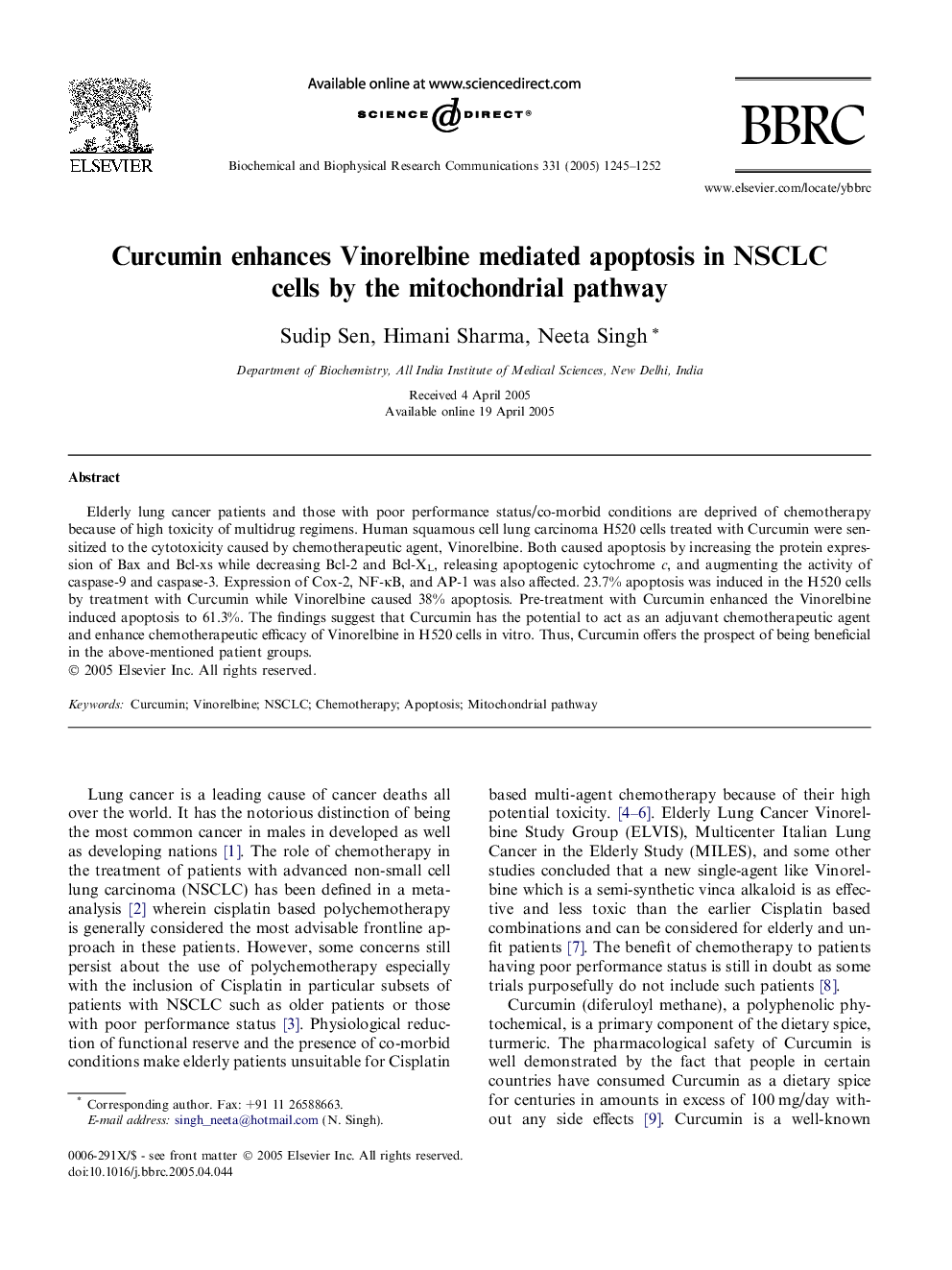| Article ID | Journal | Published Year | Pages | File Type |
|---|---|---|---|---|
| 10770439 | Biochemical and Biophysical Research Communications | 2005 | 8 Pages |
Abstract
Elderly lung cancer patients and those with poor performance status/co-morbid conditions are deprived of chemotherapy because of high toxicity of multidrug regimens. Human squamous cell lung carcinoma H520 cells treated with Curcumin were sensitized to the cytotoxicity caused by chemotherapeutic agent, Vinorelbine. Both caused apoptosis by increasing the protein expression of Bax and Bcl-xs while decreasing Bcl-2 and Bcl-XL, releasing apoptogenic cytochrome c, and augmenting the activity of caspase-9 and caspase-3. Expression of Cox-2, NF-κB, and AP-1 was also affected. 23.7% apoptosis was induced in the H520 cells by treatment with Curcumin while Vinorelbine caused 38% apoptosis. Pre-treatment with Curcumin enhanced the Vinorelbine induced apoptosis to 61.3%. The findings suggest that Curcumin has the potential to act as an adjuvant chemotherapeutic agent and enhance chemotherapeutic efficacy of Vinorelbine in H520 cells in vitro. Thus, Curcumin offers the prospect of being beneficial in the above-mentioned patient groups.
Related Topics
Life Sciences
Biochemistry, Genetics and Molecular Biology
Biochemistry
Authors
Sudip Sen, Himani Sharma, Neeta Singh,
